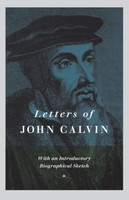
Poverty in the Theology of John Calvin (Pattison)
Description
It is the thesis of this study that in Calvin's theology, poverty and affliction--not splendor and glory--mark and manifest the kingdom of God on earth.
Poverty makes the kingdom visible to the eyes and therefore recognizable as divine. Poverty acts to reveal or disclose that which is spiritual, or that which is "of God" in the Christian faith. This does not mean that Calvin sees the condition of physical poverty as revelatory in and of itself. Rather, poverty and affliction function as agents of divine revelation.
They are a condition or a chosen instrument God uses to disclose to humanity the nature of true spirituality, godliness, and poverty of spirit. How this is demonstrated in Calvin's thought depends upon the specific doctrine under examination.
This study explores three particular areas in Calvin's theology where his theological understanding of spiritual poverty and physical poverty (or affliction) intersect--his Christology, his doctrine of the Christian life, and his ecclesiology.
Contents
Part I: Spiritual and Physical Poverty in the Theology of the Church from the Patristics to the Reformation
1. Introduction to Part I
2. Poverty in the Thought of the Church Fathers
3. Poverty in the Thought of the Middle Ages
4. Poverty in the Thought of the Reformers
5. Religious Poverty and Stewardship in the Thought of John Calvin
Part II: Spiritual and Physical Poverty in Calvin’s Theology
6. Introduction to Part II
7. Poverty and Calvin’s Christology
8. Poverty in Calvin’s Doctrine of the Christian Life
9. Poverty and Affliction in Calvin’s Ecclesiology
10. Poverty and Wealth in Calvin’s Ecclesiology
About the Author
Bonnie L. Pattison received her PhD from Princeton Theological Seminary and teaches theology, historical theology and ethics at Wheaton College. She has also taught at North Park University in Chicago and the Cameroon Baptist Theological Seminary in West Africa.





